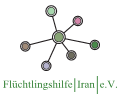POMED Notes: An Assessment of Iran’s Upcoming Parliamentary Elections
On Thursday, the WoodrowWilsonInternationalCenterfor Scholars hosted a panel event to discuss the Iranian government ambitions after the upcoming parliamentary elections in Iran, due on the second of March, if there is a widespread boycott as claimed the opposition. The discussion included Hosein Ghazian, visiting scholar from Syracuse University and the respondent was Geneive Abdo, a fellow and Iran analyst for the Century Foundation. The panel was moderated by Haleh Esfandiari, director of the Middle East Program at theWoodrowWilsonInternationalCenter for Scholars.
For full event notes, continue reading below. Or click here for a full text of the PDF
Hosein Ghazian introduced the conversation with the fact that the turnout in the Islamic Republic of Iran’s elections is traditionally high. At the last elections for the Islamic Consultative Assembly (Iranian parliament), the government stated that 65 percent ofIran’s 49 million eligible voters took part. This high turnout is claimed by the regime as proof of the support from the Iranians in the state’s institutions and a guarantee of the regime’s legitimacy. According to Ghazian, considering the March Parliament elections, the regime will face two challenges: participation and competition.
For the past three decades, the turnout to polls is around 60 percent for both presidential and legislative elections. The regime’s “propaganda” tends to associate the important voter turnout to the quality and the success of its politics. However, the important protests occurred after the released of the presidential elections results in 2009 cracked the ‘supportive picture.’ The March elections will be the first since 2009, and the regime fears that the result will express a significant decline of support. In a time of economic difficulties, because of the sanctions from the international community, and turmoil in the Arab neighbor region, the regimes needs to assert that it receives strong support from the masses. Part of the opposition wants to weaken the regime credibility and call for a boycott of the elections.
Ghazian drove the discussion to the second challenge for the regime during the next elections: competition. Ghazian studied that the “Iranian political boundaries are reshuffled” regularly, recently mostly for the benefit of the Supreme leadership. During the last decade, the power of the parliament has been restricted. The parliament’s elections also became less challenging, with a lower choice of candidates. Furthermore, Ghazian said the competition between different currents within the Iranian political scene. Ghazian said that rival currents of the Iranian President Mahmoud Ahmadinejad accused him to be influenced by the “deviant current” which is considered as trying to undermine the powerful clergy in the country. Ghazian pointed out the division of the right between the “Extreme right,” the “Moderate right,” and the “Traditional right.” These different political groups and currents believed that the Assembly’s elections will be a preload to the Penitential’s. The result of these elections will determine the power at the national level. For these reasons, these divisions and competitions between currents showing allegiance to Supreme leader Ali Khamenei and the “deviant current” create internal conflicts which will create opportunities for the Reformists at the legislative elections. However, the Reformists have little experience mobilizing the Iranian population. Ghazian predicted that the 2012 election results will have a decisive impact on the country and could give birth to a “newIran.”
Geneive Abdo reckoned that the legitimacy of the Iranian’s regime based on the high turnout to vote is important because of its choices in foreign affairs. Abdo made a direct link between this legitimacy and the fact that now the regime is preparing the population for an attack between Israel and Iran. Then Abdo demonstrated how the “political boundaries” moved in Iran’s political system. She recalled that when former President Mohammad Khatami was ruling, the Parliament had more power and pushed for a progressive agenda; it increased press freedom and worked on women’s issues. Abdo explained that the Iranian diaspora was also campaigning for the boycott of the March elections through social web network. Abdo insisted that a drop of participation in the poll would weaken the regime.
The audience asked questions about the evolution of the regime in the future. Ghazian answered that the regime was thinking of changing the Iranian political system from presidential to a parliamentarian system. The regime is suspicious about the president and three times feared it: former Presidents Abulhassan Banisadr, Khatami and Ahmadinejad. The regime fears mostly that the President would stand against the clergy and the Supreme leader. Ghazian noticed that recently the role of the clergy tended to decline, first its presence significantly dropped at the last parliament’s elections and this trend may continue as there are less candidates coming from the clergy. However, the Supreme leader is powerful because it has direct control of the country’s resources and remains the institution which leads the redistribution.
Another question was about the pressure from the Arab uprising onIran’s leadership. Ghazian lowered the Arab events’ impact on Iranian domestic politics. Iranians consider sharing little ties with their neighbors culturally and in term of identity. In addition, they consider that there are some strong differences, comparing withTunisia,LibyaandEgypt. Iran’s political system is based on religion, plus these countries had links with the West whenIranwas totally against the West and finally the revolts were clearly against the political system and the leaders that they wanted to topple. The nature of oppression inIranis different from that of the Arab countries. About the perspective on Iran-West relations, Ghazian stated that the Iranians are skeptical with having good relations with the West as they do not believe in win-win relations.
Veröffentlicht am 16. Februar 2012 in Gesetze, Medien, Meinungen, Politik und mit Ahmadinejad, Aktionen, Atombombe, Gesetze, Human Rights, Iran, Medien, Menschenrechte, Politik getaggt. Setze ein Lesezeichen auf den Permalink. Kommentare deaktiviert für POMED Notes: An Assessment of Iran’s Upcoming Parliamentary Elections.





